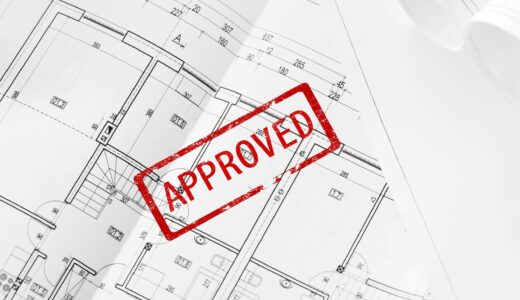Planning Permission, in simple terms, is like asking if you can do a certain piece of building work. It will be granted (possibly subject to certain conditions) or refused.
Parliament has given the main responsibility for planning to local planning authorities (usually, this is the planning department of your local council). Therefore, if you have any queries about a particular case, the first thing to do is to contact your local planning authority.
It is your responsibility for seeking, or not seek, planning permission. If required, it should be granted before any work begins.

What are the Different Types of Planning Permission?
There are several types of planning permission available, each best suited to certain projects and builds:
- Full planning permission offers consent for a project based on a detailed design being provided. However, your project must be shown to meet the planning conditions attached to the permission in order for approval to be valid. These must be discharged formally by letter by the local authority to start work.
- Outline planning permission doesn’t include any specifics in the design but offers a ‘permission in principle. Outline planning permission doesn’t give you consent to begin the work, it’s used more often to explore whether a build would be viable. An application for ‘reserved matters’ — which may include the size of the proposed house, appearance, position, landscaping and access — will need to be submitted and approved before work can take place. If your detailed plans deviate significantly from the original outline permission then you’ll likely need to submit for full planning.
- Householder planning permission is used for permission to alter or extend an individual house within the boundary of the property.
Should I Use a Consultant for Planning Permission?
Do I need a planning consultant? Many development projects start off on the wrong foot as a consequence of unfounded albeit well-intended advice. So while the usual advice is to commission a planning consultant to make your project a success, clients may be reluctant to spend large sums of money unnecessarily.
This is a decision you have to consider the involvement of a planning consultant can make or break your project.
We have full knowledge of the ever changing planning policies that any project will be subject to. So, whether you are extending, renovating or building a new home, Our help could be indispensable.
What Planning Application Drawings do I Need to Supply?
A location plan
A site/block plan
Elevations and Floor Plans
Planning drawings are the architectural drawings our clients have to submit as part of any planning permission application they want to make. They are an essential tool for architects and clients to communicate their vision so that planners can understand how their project fits into the landscape as a whole.
The truth is these drawings need skill, experience and precision in their execution to correctly convey the project’s dimensions and scale to the planning officer so that they approve the application as a whole. Later on, these planning drawings are key for the construction and fit-out of the project.

After you apply
Your local planning authority (LPA) will decide whether to grant planning permission for your project based on its development plan. It will not take into account whether local people want it.
To decide whether a application fits with its development plan, an LPA will look at:
- the number, size, layout, siting and external appearance of buildings
- the infrastructure available, such as roads and water supply
- any landscaping needs
- what you want to use the development for
- how your development would affect the surrounding area – for example, if it would create lots more traffic
In most cases, planning applications are decided within 8 weeks. In England, for unusually large or complex applications the time limit is 13 weeks. If the decision takes longer, you can appeal.
Appeals
What you can appeal against
If your application is refused, try to come to an agreement with the local planning authority (LPA) by adjusting your plans.
If you cannot reach an agreement, you can appeal.
Appeals can take several months to be decided.
You are allowed to only appeal against a decision if the LPA:
- 1-refuses your application
- 2-grants permission but with conditions you object to
- 3-refuses to change or remove a condition of planning permission that has been granted with conditions
- 4-refuses to approve something reserved under an ‘outline permission’ planning permission for a general idea, not of a specific plan
- 5-refuses to approve something that you were told to build by your LPA as part of the previous one – the current development was one of the ‘conditions’ stated in the previous one
- 6-does not make a decision on the application within the deadline and does not get your written consent to change the deadline
- 7-serves you with an enforcement notice because it thinks you have broken planning permission and you do not agree
Can You Make a Planning Permission Application on Land or a Home You Don’t Own?
You can make a planning application on any piece of land in the country you don’t have to own. You can submit an infinite number of planning applications on any one site and choose which one to use. As long as it is current, you don’t have to use the most recent

What Happens if you Build Without Planning Permission?
While it is not illegal to develop land without planning permission, it is not lawful and, consequently, if you have failed to get consent for your project, then the local planning authority can take action to have the work altered or demolished. In this instance, you can make a retrospective planning application and if this is refused you can appeal the decision. If you lose, it can prove very costly.
Altering a listed building without prior permission is a criminal offence, and in extreme cases, it can lead to prosecution and unlimited fines and even imprisonment. So do ensure you apply for approval first.





